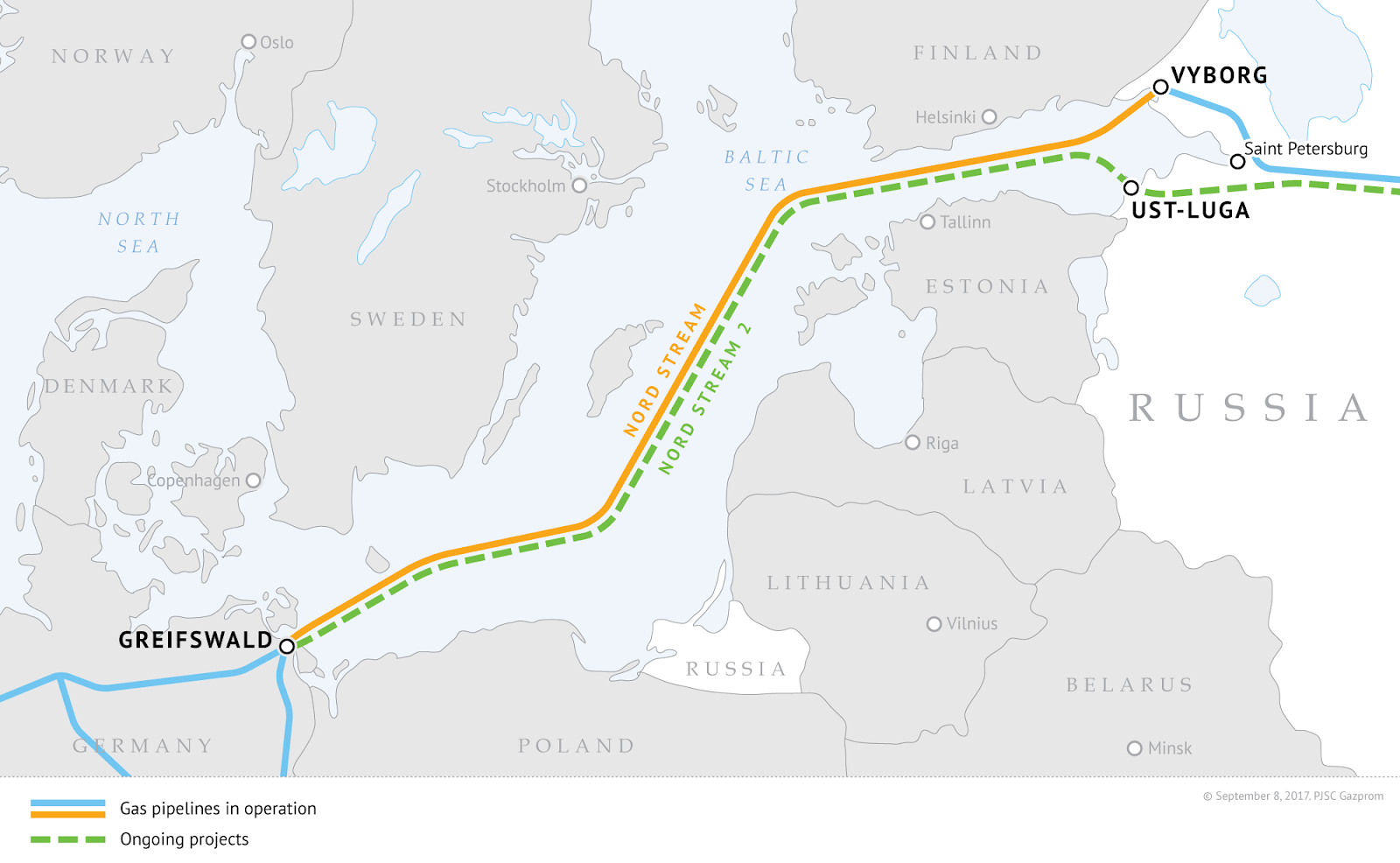The Morning Dispatch: Will Congress Fund the Military?

Happy Friday! While one of your Morning Dispatchers was doing his job covering an Amy Klobuchar rally in Iowa, the other was losing his mind watching Mitch Trubisky and the Bears run all over the Cowboys.
All the Bears have to do to make the playoffs now is beat the Packers, Chiefs, and Vikings, and get some help from the Chargers and Seahawks along the way. But as Khalil Mack told the Chicago Tribune earlier this week, the team “can’t wait to do the impossible.” Bear down. (Editor’s Note: Not happening.)
Quick Hits: What You Need to Know
Speaker Nancy Pelosi announced the House would move forward with drafting articles of impeachment against President Trump. A full House vote is expected before Christmas.
Richard Malone, bishop of the diocese of Buffalo, resigned this week months after he was accused of mishandling accusations of abuse against priests under his jurisdiction.
The Trump administration tightened work requirements for the Supplemental Nutrition Assistance Program (SNAP), potentially cutting hundreds of thousands off food stamps.
Former senator and Secretary of State John Kerry, who was the Democrats’ nominee for president in 2004, endorsed Joe Biden’s candidacy. Fun fact, Kerry is two years younger than Biden!
Rudy Giuliani has mystifyingly returned to Europe this week to meet with former Ukrainian prosecutors in an effort to “debunk” the impeachment case against Trump.
Uber released its long-awaited U.S. Safety Report, disclosing more than 100 fatalities and approximately 6,000 sexual assaults that took place on the ride-sharing platform from 2017 to 2018.
Can Congress Fund the Military?
Few things bring federal politicians together like supporting the U.S. military. In a normal year, then, the National Defense Authorization Act (NDAA), which sets Pentagon budget levels and authorizes such thing as raises in military pay, tends to be a relatively uncontroversial piece of legislation.
But tension between the two houses of a divided Congress has dragged NDAA negotiations out for months, with lawmakers squabbling over whether to include a whole host of tangential policy changes in the must-pass legislation. The House and Senate have each already passed very different versions of the bill, and negotiations to hammer out the differences have shown no real signs of progress.
By the time you read this, that could have changed: Rep. Adam Smith and Sen. Jim Inhofe continue to swear up and down that passing the bill by the end of the year is still within reach. That would mean inking a deal by no later than this upcoming Tuesday, with Congress set to recess at the end of next week.
There’s a lot of differences to square away. In the House bill, which passed last summer with no Republican support, Pelosi included a grab-bag of military policy objectives that would never otherwise see a vote in the McConnell-led Senate: a provision blocking Trump from using military funding to build his border wall, language overturning his ban on transgender individuals in the military, and a large new paid family leave program for federal employees.
The Senate version, which passed with strong bipartisan support, would not exclude wall funding and lays out the parameters for the creation of the new Space Force branch of the military.
What the final product will look like is something Smith and Inhofe are mostly keeping to themselves. Some Republicans, having hashed out a bipartisan package in the Senate already, blanch at the prospect of having to make new concessions to progressives in Pelosi’s conference; one congressional aide groused to The Dispatch that Democrats were pushing for provisions designed to please left-wing lawmakers who likely would not vote for the final product anyway.
One additional wrinkle: We’re told that Ivanka Trump, who has been the White House’s most prominent proponent of federal paid family leave, has been calling GOP lawmakers to push for the inclusion of that provision for military families.
If negotiators simply can’t find middle ground, there is one final possible exit strategy: Inhofe has separately introduced a “skinny” bill, which would ensure the bill’s most crucial funding provisions go forward while putting on hold the elements that have ground negotiations to a halt. Smith has previously declared such a bill a non-starter, but Senate Republicans remain optimistic that it could pick up momentum if negotiations on the full package remain impossibly snarled.
Republicans Taking on the Trump Administration on … Ukraine?

Now for a story involving the Trump administration, Congress, Russia, and Ukraine. No, it’s not impeachment! Nord Stream 2, a gas pipeline currently under construction by Gazprom, the largely state-owned Russian natural gas company, would connect Russia and Germany through the Baltic Sea, further solidifying Vladimir Putin’s control over energy flows in Europe.
“Nord Stream 2” implies the existence of a “Nord Stream 1”—and that implication is correct! The first iteration of this pipeline—pictured in orange below—was completed in 2012, and can transport 55 billion cubic meters of natural gas annually. In building the second pipeline—scheduled to be completed early next year—Gazprom, and in turn Putin, hopes to double that capacity, increasing European reliance on the Kremlin and squeezing out the role of Ukraine in the process.

(Source: Gazprom)
Germany agreed to the pipeline because, while the country consumes a whole lot of energy, it doesn’t generate much itself. The pipeline would provide a steady source of energy at a time of declining EU production. But “a Nord Stream 2 project without clarity about the Ukrainian transit role is not possible,” German Chancellor Angela Merkel told reporters last year.
Why? Russia currently funnels much of the gas it sends to Europe through Ukraine, which is then able to extract both transit fees and geopolitical leverage from the aggressors to the east. Putin would love to end that, further weakening the Ukrainian economy and the country’s ties to the Western world. In an interview with state TV in April 2018, Gazprom’s CEO acknowledged as much, saying that while some gas would continue to flow through Ukraine upon the completion of the pipeline, “the volumes of such transit will be much lower.”
Can the United States Do Anything?
Sen. Ted Cruz introduced the Protecting Europe’s Energy Security Act back in May, which would sanction those involved in the construction of the pipeline in the hopes of preventing it from being completed. “The United States must stand with our European allies, support energy diversity, and combat Russia’s economic blackmail,” Cruz said in a statement after the bill passed out of committee 20-2 back in July.
The bill hasn’t yet been taken up by the full Senate; Cruz and his Democratic co-sponsor Sen. Jeanne Shaheen are pushing to have it included in the aforementioned NDAA.
But under the Countering America’s Adversaries Through Sanctions Act, President Trump could impose the sanctions Cruz and Shaheen are advocating for ahead of the legislation becoming law. And with Nord Stream 2 so close to being finished—some estimates place completion less than 60 days away—time is of the essence.
Undersecretary of State for Political Affairs David Hale told Congress earlier this week that the Trump administration has “been using our diplomatic tools to seek our goal of stopping this project,” but that those diplomatic tools have only “slowed it down,” not stopped it.
Washington Post columnist Josh Rogin reported Treasury Secretary Steven Mnuchin is the main force preventing the sanctions from being enacted: “Several congressional aides said Mnuchin is resisting the sanctions because some U.S. oil and gas companies, their Wall Street backers and the governments of Germany and Denmark all oppose the action.”
When asked about this at the NATO summit earlier this week, President Trump seemed reluctant to have the U.S. play much of a role in blocking Putin’s project. “Well, we haven’t really determined that yet. I do think it’s a problem, but it’s a problem that Germany is going to have to work out for themselves. And maybe for Germany it won’t be a problem. I hope it’s not, actually. But we’ll be talking about that, Nord Stream.”
“I want this to be very clear,” Cruz said to Hale in the hearing this week. “If the pipeline is completed, it will be the fault of the members of this administration who sat on their rear ends and didn’t exercise the clear power.”
Preempting the IG Report Spin
The Department of Justice’s inspector general is expected to release his report on the Russia investigation on Monday. In advance of any IG report like this, relevant portions of the report are shown to those who are included with “derogatory information” to give them the opportunity to provide their comments. Not surprisingly, in the past couple weeks we have seen several news stories with selective leaks from the report that cite “sources familiar with the contents of the report.”
It is reasonable to assume that most (if not all) of these sources are themselves subjects of the report, and that they are hoping to preemptively offer their own spin on what we are all about to read. So it’s wise to be avoid drawing sweeping conclusions about what is in the report based on these sources—or even our own. IG Michael Horowitz has shown himself in the past to be a serious lawyer more interested in nailing down facts than in pushing particular narratives. The smart money, then, is that his report that will not fully vindicate either side—neither the FBI, which we know will be dinged for several serious missteps in the lead up to the special counsel’s appointment, nor the Trump administration, which spun such an implausible version of events it would make a Michael Bay screenwriter blush. (Big fans of The Rock—don’t @ us.)
One prediction you can take to the bank: Both Democrats and Republicans will declare victory immediately.
David French and Sarah Isgur will be covering the contents of the report next week for the inaugural episode of their legal(ish) podcast: Advisory Opinions.
Worth Your Time
President Trump’s defenders have argued impeachment is distracting Congress from priorities like the USMCA and lowering prescription drug prices. Turns out, impeachment is Republican voters’ highest priority, and Democratic voters’ second highest, per a New York Times Upshot analysis. Using conjoint experiments, Lynn Vavreck, John Sides, and Chris Tausanovitch found that voters on both sides of the aisle were willing to sacrifice nearly all other policy and political wins to get their preferred outcome in the impeachment battle.
In a piece for the New York Times Magazine, Josh Owens recounts his time working for Infowars conspiracy theorist Alex Jones, and why he regrets it. “As Jones punched the gas pedal to the floor, the smell of vodka, like paint thinner, wafted up from the white Dixie cup anchored in the console. My stomach churned as the phone I held streamed live video to Facebook: Jones rambling about voter fraud and rigged elections while I stared at the screen, holding the camera at an angle to hide his double chin. It rarely worked, but I didn’t want to be blamed when he watched the video later.”
In a heartbreaking story for the Great Falls Tribune, David Murray recounts how the Montana criminal justice and social service system failed five-year-old Antonio Renova, who was found dead last month. The foster family who had cared for the young boy with fetal alcohol syndrome since days after his birth was seeking to adopt him. But because Antonio had Native American blood, he was subject to the Indian Child Welfare Act, which allows tribes to set aside the best interests of the child in favor of keeping Native American children with those who share their ancestry. So, Antonio’s foster family was largely excluded from the tribal legal proceedings that returned him to his biological parents despite long and persistent criminality and previous indications of abuse.
Presented Without Comment

Something Fun
Happy 23rd birthday to this tremendous content.
Toeing the Company Line
Due to popular demand, we are opening up the opportunity to purchase annual memberships to The Dispatch a little earlier than planned. Everything will be free until February 2020, so there is no pressure to do this now. But if you want to be an early supporter of our mission and start your yearly paid membership right away, now you can. Just click here.
Two new French Presses for your reading pleasure; the first takes a look at Trump’s conspiratorial nature and how it’s led us to this point. The second dives into a grassroots movement against gun control, qualified immunity, and congressional subpoenas.
Jonah was joined on The Remnant podcast by Nick Gillespie of Reason magazine to discuss libertarianism, conservatism, and cookies. Give it a listen here!
Let Us Know
Joe Biden and an Iowa voter got into a pretty intense exchange over Joe’s son Hunter yesterday, culminating in the former vice president challenging the man to both a push-up contest and an IQ test.
Our question to you: Which of the following non-democratic processes would be most preferable to our current primary system in determining our political leaders?
Hula hoop tournament
Peloton marketing campaign competition
Rubik’s cube race
Baby Yoda meme-off
Nathan’s hot dog eating contest
Reverse alphabetical order
Reporting by Declan Garvey, Andrew Egger, Sarah Isgur, and Steve Hayes.
Photo credit: In this handout photo, German Chancellor Angela Merkel and Russian President Vladimir Putin meet at Schloss Meseberg palace, the German government retreat, at Meseberg on August 18, 2018, in Gransee, Germany. (Photo by Steffen Kugler/Bundesregierung via Getty Images)